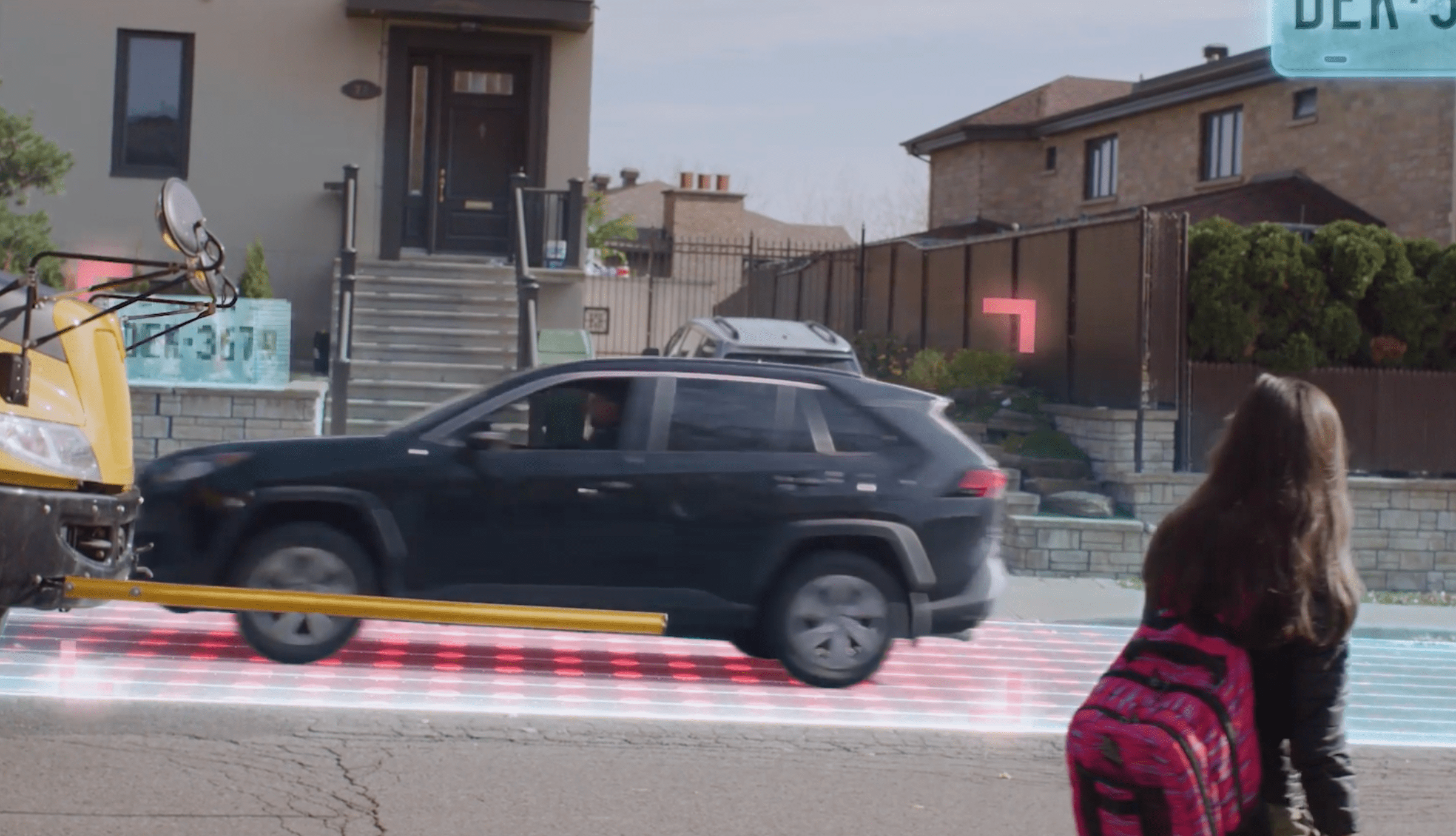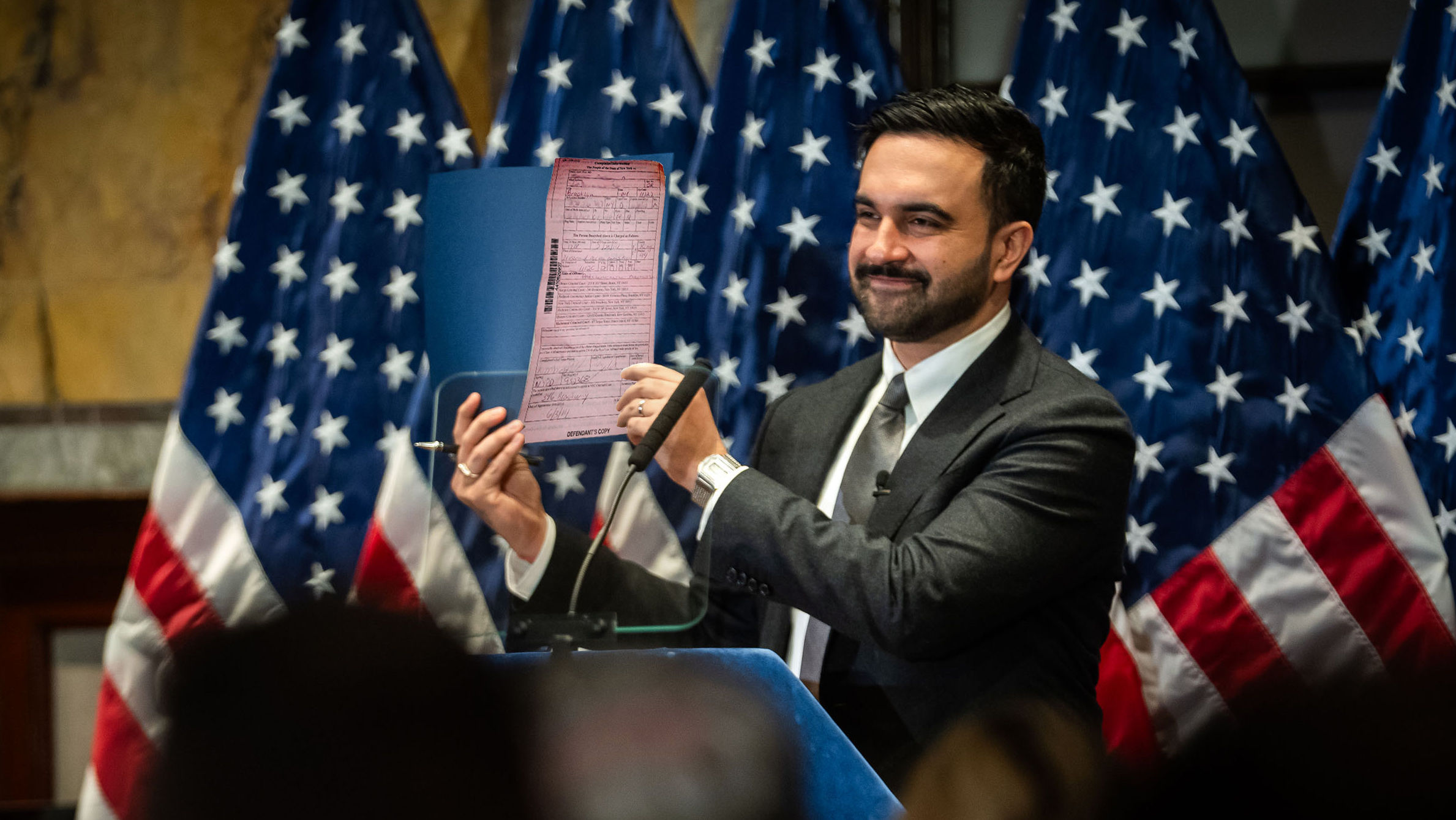Cameras could issue tickets to illegally parked motorists or the flashing "Stop" arm on school buses could pinpoint the cars illegally passing them — if the city can muster the political will to do it.
That was the message of a Vision Zero Cities conference panel that brought together technologists and advocates to discuss how to deter motorists from violating a bike or bus lane or a loading zone — or from barreling past stopped school buses and endangering children.
The speakers posited a future in which enforcement of our increasingly conflicted curb space won't be by cops (who are some of the worst violators of the rules anyway), but rather by thousands of "electronic eyes" endowed with artificial intelligence that will be mounted on facilities or on vehicles.
The technologists presented eye-popping data to support the case that their products could be a force for safety — on the idea, supported by studies, that once hit with camera-issued tickets most motorists "learn their lesson" and rarely re-infract.
"The way we see it, [policy] starts with measuring how bad is it actually ... how many violations are actually happening?" said Matty Schaefer, co-founder and CEO of Vade.ai, a start-up that sells wireless mounted cameras that generate real-time data about curb occupancy.
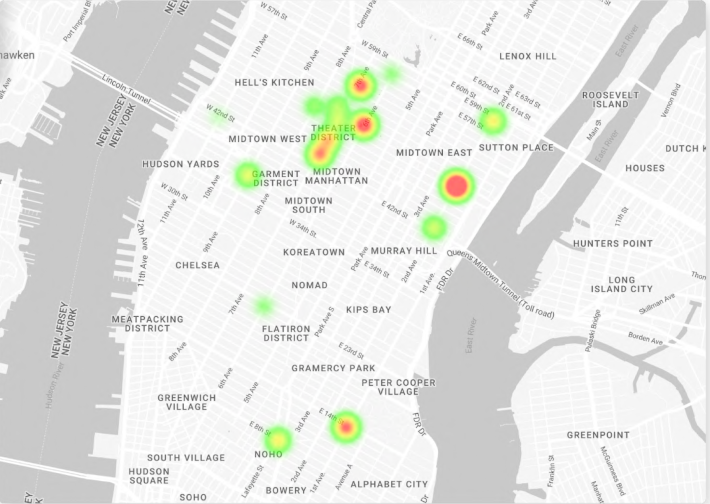
Schaefer offered some back-of-the-envelope calculations about bike-lane invasions in Manhattan. Crunching the data from 16 existing public traffic cameras in busy areas of Midtown (not a statistically representative sample, he admitted) over the course of a recent week, Vade detected parked vehicles blocking bike lanes around 250 times.
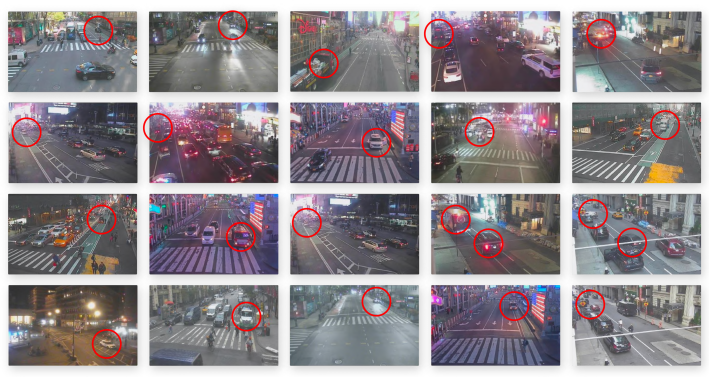
Using a conservative estimate of 2.5 violations per camera per day and extrapolating that to the 500,000 feet of unprotected bike lanes in Manhattan, Schaefer estimated that motorists are violating Manhattan's unhardened lanes around 4 million times annually (which would yield the city around $450 million in tickets — though state law would need to be changed to allow the city to install such cameras). Meanwhile, traffic enforcement agents have issued some 48,000 citations for bike-lane parking so far this year (roughly two tickets per precinct per day), according to city data, so police are only capturing only about 1.2 percent of the violations, he said. (Also worth noting: Actual police officers, as opposed to traffic agents, have only written 2,348 bike lane tickets this year, or roughly eight per day in the entire city.)
If Albany passed legislation enabling automatic camera enforcement for such violations, he said, the city could design a safety model that could:
- Measure the actual number of bike-lane violations
- Correlate locations of violations to injuries/fatalities
- Mitigate hot spots by sending alerts to nearby officers (and ultimately)
- Change the underlying behavior of motorists by enforcing 100 percent of violations
- Relieve the police of a chore they don't like to do.
It's unclear when all of that can happen, but last year, the Department of Transportation issued a "request for expression of interest" about doing such a pilot. Meanwhile, a Council bill to give citizens the right to enforce bike lanes is stalled.
On the panel, Sara Lind, the chief strategy officer of Open Plans (a sister organization of Streetsblog) talked about the "political resistance" to the installation and enforcement of alternative curbside uses, such as bike lanes, bus lanes, loading zones, parakeets, bioswales — basically any use that doesn't privilege free car storage for motorists.
"If you follow kind of the red-light and speed-camera fights, we had to fight really hard all the time to get authorization from Albany so that New York City can do those automated-enforcement programs," she said. "They have amazing technology and it seems like a no brainer that we should use it — but too often, there's various political reasons why we don't, so there's a really critical role for advocates and advocacy organizations."
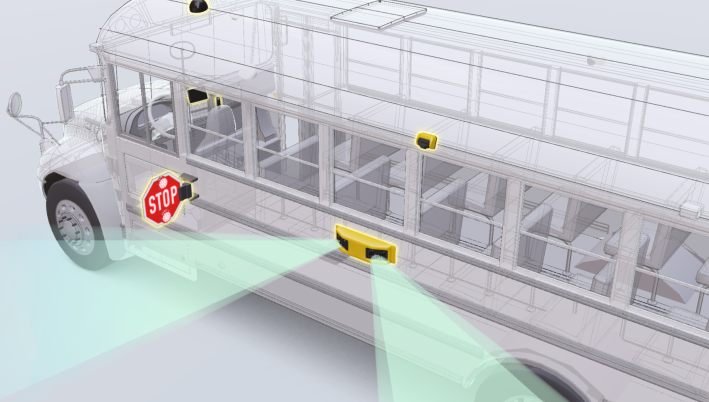
The Virginia-based company BusPatrol, which outfits school-bus fleets with cameras that give a wrap-around view of the road, on the other hand, already markets its product in New York state — and localities in Suffolk, Dutchess and Monroe counties have adopted it on thousands of buses. The company does not charge municipalities for its service, instead funding itself through the tickets, which start at $250 for a first-time offense and grow from there. That's plenty of fodder: The state estimated that drivers passed school buses illegally more than 150,000 times during the 2019 school year, according to Newsday.
BusPatrol's CEO Jean Souliere said that his AI engine sees across so many lanes that "every single car that illegally passes a school bus gets a ticket."
"So you've got this ubiquitous kind of enforcement ... that is also a really effective way to calm traffic during rush hour," he added.
Souliere said that his company has designed the program for safety and equity — not revenue-generation. "We've really invested a lot in awareness and education on the front end of these programs, so they don't come as a surprise and feel like 'gotchas' and we really protect their integrity," he said.
Tiffany-Ann Taylor, vice president for transportation at the Regional Plan Association, said that she is encouraged by the new coalitions she sees forming in the wake of the pandemic, which caused people to look differently at their streets as places for commerce, recreation, dining and health.
There was a realization that, "Wow, my direct environment, the street in front of me, means so much to my body. And the allocation of space means so much to my health and the health of whoever lives in the house with me."
"I'm in the camp where I believe that more stakeholder engagement is often a good thing," Taylor said, citing her previous role at the DOT, where she worked on freight accommodations such as loading zones. "And so having people at the table having community groups, absolutely advocate for more programs, right having different partners in the sustainability conversation."
Noting that it took 30 years for congestion pricing finally to pass, she said: "Quite honestly, persistence is key ... and with that persistence, continued education."
